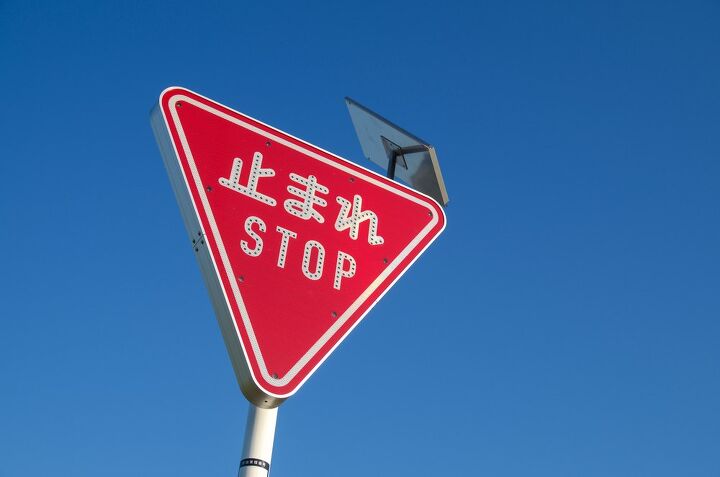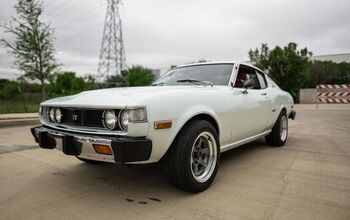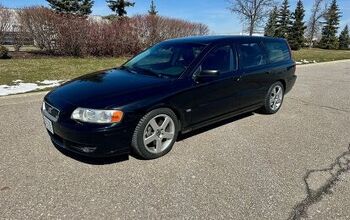Japan Says America’s Updated EV Tax Credits Are Illegal

Following the passing of the U.S. “ Inflation Reduction Act,” South Korea came to the defense of Hyundai Motor Group to urge America to postpone things until the automaker completed a facility in Georgia intended to manufacture all-electric vehicles. Hyundai chairman Chung Eui-sun had reportedly expressed serious concerns that revamping and renewing the EV credit scheme disproportionately advantaged certain manufacturers – sending the Korea Automotive Industry Alliance into lobbying overdrive.
The South Korean government was happy to assist by suggesting that the United States may be in violation of WTO regulations as well as the Korea-U.S. free trade agreement. And Yasutoshi Nishimura – the Japanese Minister of Economy, Trade and Industry – seems to be following suit roughly a week later. Japan likewise feels that the Biden administration may have violated international law and is backed by its own regional lobbying groups representing the automotive sector.
Automotive News reported that Nishimura expressed concerns about the new law while meeting with U.S. Commerce Secretary Gina Raimondo in Los Angeles on Wednesday. Though the talks were actually part of larger discussions surrounding the Indo-Pacific Economic Framework – which was introduced by the Biden administration as a revamped version of the contentious Trans-Pacific Partnership Agreement earlier this year.
As with Korea, Japan’s big gripe with the Inflation Reduction Act of 2022 revolves around how it fails to help its automakers financially. With the global industry having been the beneficiary of the previous U.S. EV tax credit scheme for over two decades, it now appears to expect that government handouts will continue indefinitely.
But the new deal dissolved the previous quota system (which several companies hadn’t yet reached) to introduce one based on content requirements designed to help localize manufacturing in North America. The Alliance for Automotive Innovation (AAI) – representing practically every global automaker that currently exists – claimed that the new legislation effectively stripped credits from 70 percent of the 72 models that were previously eligible.
Since then, the Biden administration has pushed back by stating that there were roughly 20 plug-in hybrids and pure battery electric cars that could still benefit under the new plan. However, new provisions pertaining to battery content requirements are scheduled to come into effect at the beginning of 2023, and they are likely to shrink that number dramatically.
The Japan Automobile Manufacturers Association, the country’s largest auto lobby, has said it remains concerned about the new law and would be monitoring future developments.
[Image: S.Jettar/Shutterstock]
Become a TTAC insider. Get the latest news, features, TTAC takes, and everything else that gets to the truth about cars first by subscribing to our newsletter.

A staunch consumer advocate tracking industry trends and regulation. Before joining TTAC, Matt spent a decade working for marketing and research firms based in NYC. Clients included several of the world’s largest automakers, global tire brands, and aftermarket part suppliers. Dissatisfied with the corporate world and resentful of having to wear suits everyday, he pivoted to writing about cars. Since then, that man has become an ardent supporter of the right-to-repair movement, been interviewed on the auto industry by national radio broadcasts, driven more rental cars than anyone ever should, participated in amateur rallying events, and received the requisite minimum training as sanctioned by the SCCA. Handy with a wrench, Matt grew up surrounded by Detroit auto workers and managed to get a pizza delivery job before he was legally eligible. He later found himself driving box trucks through Manhattan, guaranteeing future sympathy for actual truckers. He continues to conduct research pertaining to the automotive sector as an independent contractor and has since moved back to his native Michigan, closer to where the cars are born. A contrarian, Matt claims to prefer understeer — stating that front and all-wheel drive vehicles cater best to his driving style.
More by Matt Posky
Latest Car Reviews
Read moreLatest Product Reviews
Read moreRecent Comments
- Corey Lewis It's not competitive against others in the class, as my review discussed. https://www.thetruthaboutcars.com/cars/chevrolet/rental-review-the-2023-chevrolet-malibu-last-domestic-midsize-standing-44502760
- Turbo Is Black Magic My wife had one of these back in 06, did a ton of work to it… supercharger, full exhaust, full suspension.. it was a blast to drive even though it was still hilariously slow. Great for drive in nights, open the hatch fold the seats flat and just relax.Also this thing is a great example of how far we have come in crash safety even since just 2005… go look at these old crash tests now and I cringe at what a modern electric tank would do to this thing.
- MaintenanceCosts Whenever the topic of the xB comes up…Me: "The style is fun. The combination of the box shape and the aggressive detailing is very JDM."Wife: "Those are ghetto."Me: "They're smaller than a Corolla outside and have the space of a RAV4 inside."Wife: "Those are ghetto."Me: "They're kind of fun to drive with a stick."Wife: "Those are ghetto."It's one of a few cars (including its fellow box, the Ford Flex) on which we will just never see eye to eye.
- Oberkanone The alternative is a more expensive SUV. Yes, it will be missed.
- Ajla I did like this one.


































Comments
Join the conversation
Mr Biden is a nationalist without the MAGA hat.
Apparently, the world isn’t worth saving unless Democrat special interest groups get paid off.